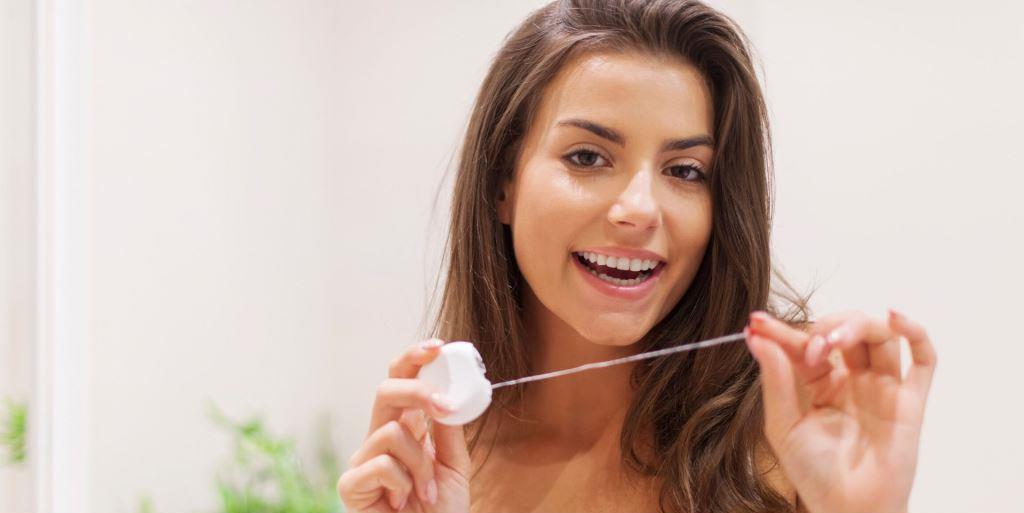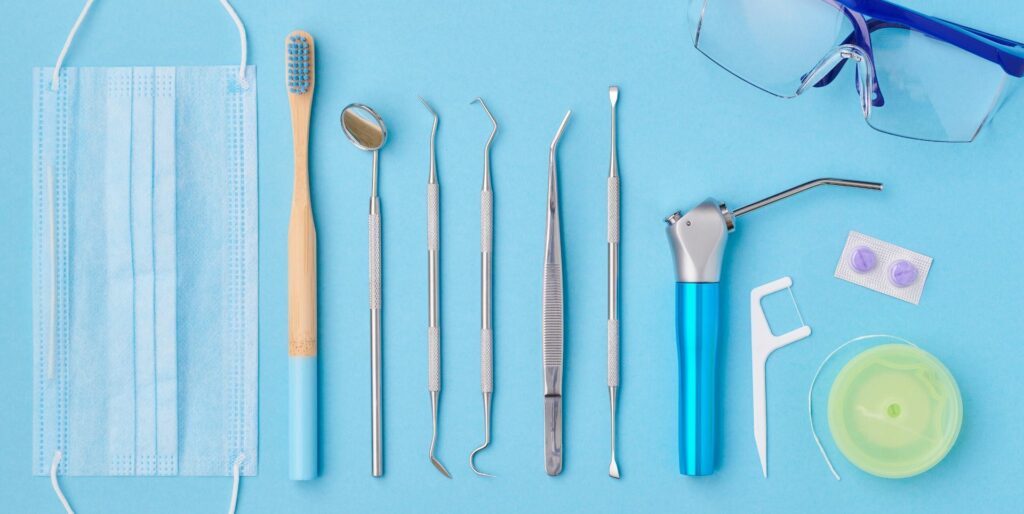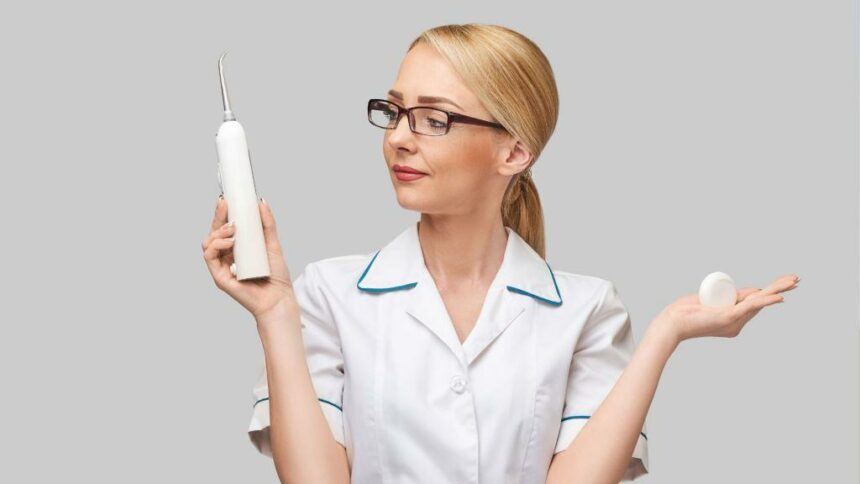More than half of the Polish population ignores the fact that brushing alone is not enough to take proper care of oral hygiene. Know that you still need to regularly clean the spaces between your teeth - there, too, there is a whole host of bacteria. Now the question is: Is it better to floss or is a dental irrigator better?
Or - for best results - use both solutions? Read our article and find out more.
How to use dental floss?
Even the best tool won't be able to help us if we don't know how to use it ourselves! This is why it is a good idea to make sure you know how to use floss.
Flossing is not difficult at all, although it does require a bit of practice. It is worth working out the technique that is most comfortable for you.
Floss your teeth gently, on both sides, from top to bottom - and make sure that the 'new spot' gets a piece of 'new floss' too. It is the gentleness that is key - an often cited disadvantage of this tool is the risk of hurting your gums. So be careful!
Read our article: "How do you floss your teeth and why is it so important?".

How to use a dental irrigator?
A dental irrigator, on the other hand, requires no technique on your part. All you have to do is direct the jet of water into the interdental space so that it is properly cleaned. Because the dental irrigator works with pressurised water, you will be able to reach even the most inaccessible areas.
However, remember to adjust the device so that this stream is not too strong at the beginning. The gums are tender!
Be sure to also read our article: "What to do to have healthy gums?".

Advantages and disadvantages of flossing
Floss users praise the fact that they know exactly where it has arrived. This gives them the confidence that they haven't missed a spot!
The disadvantage, however, is that to reach really deep, it is necessary to bare down firmly. Another downside of flossing is the discomfort it can cause to users who have crowded teeth. And also, as we mentioned earlier - it can contribute to bleeding gums. And we have already written about this in our article: "Bleeding gums - causes and treatment".
Advantages and disadvantages of the irrigator
The undoubted advantage of the irrigator is that it's really easy to use - and the only thing to be aware of is that you may find it difficult to control the amount of water that comes out of it on your first attempts. However, it's nothing that can't be easily learned!
Ease of use is also linked to the fact that, That the dental irrigator will reach the hardest-to-reach areas without too much effort. You are also very unlikely to injure your gums. And if you're the owner of tightly crowded teeth, the irrigator won't cause discomfort during use either.
The disadvantage of an irrigator, on the other hand, can be its price. While dental floss will cost a few pounds or less, a dental irrigator is several times the expense. In our opinion, however, absolutely worth the price!
Read also our article: "Causes of bad breath and how to get rid of it".

Should I choose a dental irrigator or dental floss?
This will depend entirely on your own preferences! If a dental irrigator is out of your reach, that's fine - floss will also do just fine. An irrigator is a convenient tool, but it is not essential for you to maintain proper oral hygiene.
The most important thing is that you clean the spaces regularly interdental, and how you do it - it's up to you! Also read our text: "(In)proper oral hygiene. The 10 biggest mistakes".
Remember, too, that in order to keep your smile healthy, you should go for a check-up once every six months. Your dentist will also be able to remove any tartar build-up at this time, as well as carry out other treatments such as scaling or sandblasting. Read our text: "Dental hygiene in the UK - scaling, tooth sandblasting, polishing and fluoridation".
Let's further answer the question from the beginning of the text - Perhaps, for perfect oral hygiene, it would be a good idea to use both floss and a dental irrigator? Of course, you can do that - if you have such needs. But remember - it is entirely up to you! After all, you yourself know best what is best for your teeth.
And for professional advice - make an appointment with us.

